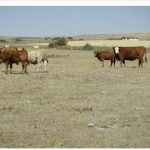Mulch systems are a key part of organic conservation tillage.
Advances in cover crop research have permitted organic producers to
experiment with living and killed mulches to suppress weeds.
In a killed mulch system, a dense cover crop is grown and killed, and a
new crop planted into the residue. The dense biomass provided by the
killed cover crop protects and builds the soil and suppresses weeds.
Mulches are used in conventional farming systems for similar benefits,
Read Also

Interest in biological crop inputs continues to grow
It was only a few years ago that interest in alternative methods such as biologicals to boost a crop’s nutrient…
but herbicides are the primary tools used in killing the cover crops.
Organic producers favour mechanical technologies or use weather stress
to weaken cover crops.
Mowing, undercutting and rolling are popular mechanical choices. Often
a more economical way is to let Mother Nature do the work.
Winter temperatures will kill cover crops such as millet, buckwheat,
berseem clover, annual medic and a non-winter hardy alfalfa with a fall
dormancy rating of seven or higher, leaving a dense mulch that crops
can be planted into the following spring.
Living mulches are another alternative. A cash crop is sown into an
existing cover crop, such as white and kura clover, canola or perennial
ryegrass, which remains living for all or part of the growing season
and perhaps perennially.
Successful living mulch systems must manage a balance between weed
suppression and competition with the cash crop for light, water and
nutrients.
Making conservation tillage work in organic production is no
cookie-cutter recipe. Many of the approaches are not generically
“field-ready” and will require significant research to ensure more
widespread adoption.
The Organic Agriculture Centre of Canada is initiating research this
summer on various cover crops. While they are intended as green
manures, they may also suppress weeds.
Organic conservation tillage systems have had a long history, but at
the same time are in their infancy.
Many of the existing technologies still use cultivation to manage
weeds, but even these somewhat imperfect systems are contributing to
the sustainability of organic agriculture and should be pursued by
producers and researchers.
















